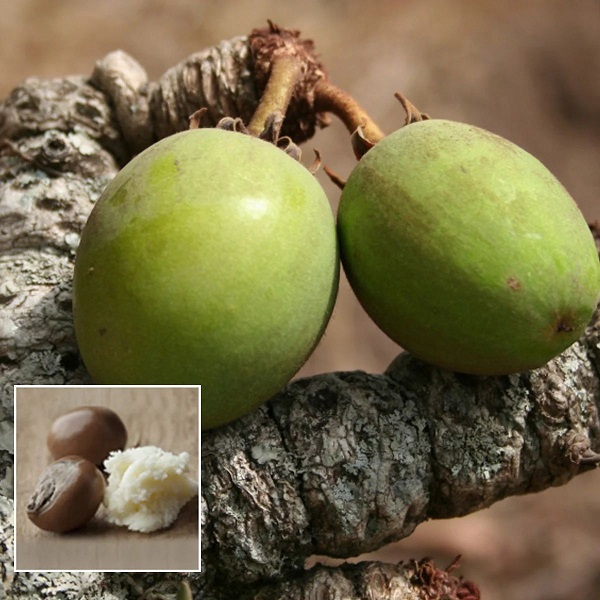GhanaWeb feature by Sekina Sidique
Shea butter has been around for thousands of years. This popular and widely used butter is a fat extracted from the nut of the African shea tree, containing healing properties in the form of vitamins and fatty acids.
In addition to its cosmetic applications, shea butter is also edible and can serve as a substitute for various cooking oils and butter.
Two subspecies of trees produce shea butter nuts. The first is Vitellaria Paradoxa from West Africa (Ghana and Nigeria), and the second is Vitellaria Nilotica from East Africa (Uganda).
Shea trees grow naturally in Northern Ghana, taking up to 50 years to mature for harvesting.
The Process
After harvesting shea fruits between late April and early June, the fruit is consumed as a tasty snack while the seeds are saved and crushed into smaller pieces.
This crushing process is traditionally done by hand using a mortar and pestle, which can be laborious and tiring. The use of grinding mills in modern times has helped streamline this tedious process.
The crushed shea seeds are then gently roasted over a fire to facilitate the release of oils and butter. This step is time-consuming and requires careful attention to prevent the seeds from burning. While this process can be dangerous due to the heat from the fire, a more modern approach has been adopted in recent times.

Photo by Kew Gardens
Subsequently, the seeds are ground a second time in a hopper to transform the crushed and roasted seeds into a paste. Oil is released at the bottom of the hopper.
Water is added to the paste and kneaded until the desired consistency is achieved. The mixture is then hand-whipped and churned until the shea oil coagulates into an early-stage shea butter, a labor-intensive process.

Photo by Kew Gardens and Heifer International
The coagulated shea oil is skimmed off and undergoes three additional processes: cooking, skimming, and settling, before being left to cool and solidify.
Cosmetic Use
One of the most common uses of shea butter is in lotions, moisturizers, and balms. It is an excellent moisturizer for both hair and skin, with many women crediting their youthful appearance and healthy hair to the use of organic and raw shea butter.
Shea butter is suitable for all skin types due to its low protein content, which reduces the risk of triggering allergies. Its lightweight texture, high in linoleic acid and oleic acid, allows for easy absorption by the skin without feeling heavy or clogging pores.
Anti-inflammatory
Shea butter can be applied to burns and dry skin, providing relief for conditions like eczema, dermatitis, and psoriasis due to its anti-inflammatory properties from plant esters.
Anti-aging
Shea butter aids in cell regeneration, reducing the appearance of wrinkles, fine lines, stretch marks, and scars, thanks to the presence of triterpenes. These natural compounds are believed to deactivate collagen fiber destruction.
Other Benefits
1. Soothes sunburn and insect bites
2. Promotes wound healing
3. Prevents hair breakage and treats dandruff
It is important to note that while refined shea butter is hydrating, it lacks the skin-calming properties of unrefined shea butter. Exercise caution when consuming shea butter by familiarizing yourself with its source and additional ingredients.
If you experience side effects or allergic reactions from shea butter use, discontinue use and consult your healthcare provider or doctor.